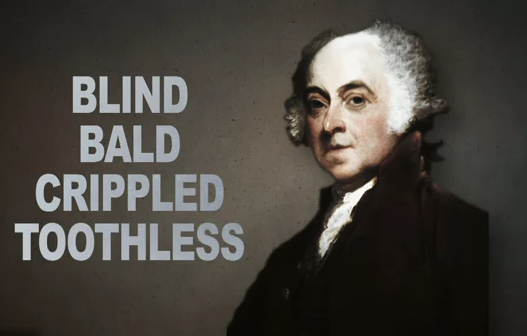 A short of mine, "Delusions of Failure" is up at Purple Wall. Normally I would tell you to read it and enjoy this story about a mysterious DVD of the movie Ishtar. HOWEVER, this is different. Purple Wall posts stories and readers can vote on their favorites. So, read the story, vote using the link at the top, and look for an email with a code you can use to confirm your vote. Said email might be in your spam folder, so check there too.
A short of mine, "Delusions of Failure" is up at Purple Wall. Normally I would tell you to read it and enjoy this story about a mysterious DVD of the movie Ishtar. HOWEVER, this is different. Purple Wall posts stories and readers can vote on their favorites. So, read the story, vote using the link at the top, and look for an email with a code you can use to confirm your vote. Said email might be in your spam folder, so check there too.
Showing posts with label celebrity. Show all posts
Showing posts with label celebrity. Show all posts
Tuesday, September 1, 2020
A Short Story Up Against the Purple Wall
 A short of mine, "Delusions of Failure" is up at Purple Wall. Normally I would tell you to read it and enjoy this story about a mysterious DVD of the movie Ishtar. HOWEVER, this is different. Purple Wall posts stories and readers can vote on their favorites. So, read the story, vote using the link at the top, and look for an email with a code you can use to confirm your vote. Said email might be in your spam folder, so check there too.
A short of mine, "Delusions of Failure" is up at Purple Wall. Normally I would tell you to read it and enjoy this story about a mysterious DVD of the movie Ishtar. HOWEVER, this is different. Purple Wall posts stories and readers can vote on their favorites. So, read the story, vote using the link at the top, and look for an email with a code you can use to confirm your vote. Said email might be in your spam folder, so check there too.
Labels:
2020,
Ben Nardolilli,
celebrity,
election,
fantasy,
fiction,
history,
humor,
internet,
Magic,
movies,
New York,
non-biography,
surrealism,
technology,
television,
urban,
writing
Saturday, June 8, 2019
Pulp Fiction Was Ahead of Its Time
 |
| Tarantino predicted the rise of social media and drinking bleach |
Labels:
celebrity,
crime,
criticism,
humor,
Los Angeles,
movies,
non-fiction,
observations,
youtube
Sunday, September 23, 2018
An Aberrant Blogpost
Jason Peters and his Aberrant Literature Press have recently published an anthology of short fiction, and a story of mine "The Sick-Alike" is included. You can get a copy of it here at Amazon.
Labels:
Amazon,
Ben Nardolilli,
books,
celebrity,
economics,
health,
humor,
Los Angeles,
music,
prose,
publishing,
short story,
sickness,
travel,
web pages,
writing
Tuesday, March 27, 2018
A Lost Devo Album Cover?
 |
| Or Proto-Devo? Would that make it Evo? |
Sunday, January 22, 2017
Comparing Inaugurations Trump Vs. Obama
This image has been making the rounds lately in one form or another:
...in order to compare attendance at Obama's 2009 inauguration compared to Trump's in 2017. I just want to say this is a very misleading image. All that white you see was actually filled with people. They were just wearing hoods.
...in order to compare attendance at Obama's 2009 inauguration compared to Trump's in 2017. I just want to say this is a very misleading image. All that white you see was actually filled with people. They were just wearing hoods.
Tuesday, May 17, 2016
Part Moron, Part Genius and Part Ogre: Reviewing Paris Review Interviews
As I mentioned in my last blogpost I'm getting back into the publishing game, trying to find and agent and with their help, scale the heights of the...um...publishing world. To that end I'm immersing myself in the world of writing, authors, and publishing. I'm reading articles about getting published, instructions, lists of agents, how-to manuals, all of it. Hopefully something will rub off on me. Or I will at least be inspired. The key is to make it what I do when I'm bored or when I need something to kill time. No more idle following the news, gossip, music, or movies. No, instead, I'm going to listen to an interview on Bookworm with Michael Silverblatt or watch a documentary about Hemingway, Fitzgerald, or the whole Lost Generation!
However, I save that for when I'm submitting and searching for presses and agencies. When I can't play something in the background, or watch it in the foreground, I have to turn to the text in order to continue my immersion in the affairs of the writ. It makes sense, words for a would-be up-and-coming wordsmith. A favorite of mine are the interviews at the Paris Review. They span the decades from the 1950s to the present day and contain several gems from poets, playwrights, and novelists. Reading through them, you realize how the same problems with editors, audiences, booksellers, publishers, and writer's block keep recurring through literary history and never fail to spare the famous, infamous, unknown, and rightfully ignored.
 |
| In the 1950s, a goatee like this automatically landed you on the Blacklist |
"He is so stupid you can't trust him with an idea.
He is so clever he will catch you in the least error.
He will not buy short books.
He will not buy long books.
He is part moron, part genius and part ogre.
There is some doubt as to whether he can read."
Terry Southern's interview was interesting, if for no other reason, I think I look like him with my bangs and beard. He also predicted rise of cable and movies on demand. At one point, the interviewer asks “will success spoil Terry Southern?” judging from his Wikipedia page, I’d say yes, yes it did.
Over time, the interviews slowly evolve and the interviewees change the way they write them. In Harold Bloom's piece, the interview strangely incorporates his wife and him wandering through rooms and watching television. In the end it becomes a screenplay of the time the two of them spent together. In his interview, he revealed that he liked the Band (“there hasn’t been any good American rock since, alas, The Band disbanded”), as well as his view of foreign policy ("Our foreign policy basically amounts to making the world safe for Gnosticism").
Reading the more recent pieces in the Paris Review, it seems they are becoming self-aware. Not that the subject and the interviewer suddenly know they are in the midst of a friendly interrogation. That's always been the case since the interviews started. It's more the case that the Paris Review is now dealing with writers like Matthew Weiner and Wallace Shawn who grew up reading the interviews. Wallace even believed he would end up being interviewed by the publication eventually.
Perhaps one day I'll get to make a comment about commenting on the interviews while being interviewed by the Paris Review. Meta Squared.
Labels:
biography,
books,
celebrity,
fiction,
history,
humor,
interview,
literary magazines,
literature,
memoir,
non-fiction,
observations,
podcast,
poetry,
prose,
writing,
youtube
Monday, December 21, 2015
Forays into Film Criticism
Hey everybody, I wrote some film reviews. Quail Bell was kind enough to publish them. In theory I'm their "New York Correspondent." Hopefully more work will be forthcoming from this position. I plan to review all kinds of things, from books to movies to food. One of these reviews is for the movie Queen of Heaven, the other is the zombie flick Cooties. I'm trying to focus on the conditions of watching the film itself, as well as what's on the silver screen.
Wednesday, August 7, 2013
Get Lucky with Blurred Lines
I haven't posted anything in a while and I haven't posted poetry in an even longer time. But seeing Stephen Colbert using Henry Kissinger for his much praised performance, I don't know. It just disturbs me, along with the way everyone who is supposedly leftist and liberal looks past it. Then again, without amnesia, how could we expect Hillary Clinton to be president in 2016? She'll be making history then, as long as we can ignore the history she helped make in Babylon. I dread the day George W. Bush gets to trot out his imbecilic grin and give voice to it on the Simpsons Treehouse of Horror LVII. It will be heralded, maybe even nominated for an Emmy. So it goes.
Get Lucky with Blurred Lines
You tell yourself he cannot be an Eichmann, no,
He is a Jew and an old Jew at that,
An old Jew could never commit such terrible crimes
Not for the banal reason of an promotion, a desk,
Evil always has an ideology behind it, at least
Evil in America needs a cross to rally behind or burn.
And he can easily go along with the joke, evil
Never jokes, never makes a cameo,
Evil demands the spotlight, it demands to be a star,
Of course you are a star too, with a show,
A show where you dance with him while an audience
Too young to remember a secret bombing laughs.
The script calls for him to call for security
To escort you from the premises,
Decades ago, he called on friends in other countries
To overthrow their presidents, fill stadiums up
With folksinging hooligans and gun them all down,
Perhaps you want to highlight the contrast?
Here he is now, harmless like an urchin,
A buffoon who might even drop his glasses in a toilet,
An elder statesman with his gravitas swinging
Like a snood tucked under his pale chin,
You are old enough to remember beauties hooking
Their arms with him to promenade down red carpets.
He gives off no aphrodisiac now, not for you, no,
You dance too quickly for him to catch you,
Even if the camera lingers, the smell does not reach you,
You are too busy, you must go embrace an actor,
Meanwhile, the urchin leaves his desk behind
To sway a would-be candidate waiting in the wings.
Wednesday, March 13, 2013
Tuesday, March 12, 2013
Take a Little Time to Think
...with this poem I wrote for The Social Poet
Labels:
Ben Nardolilli,
celebrity,
internet,
literary magazines,
non-biography,
observations,
poetry,
writing
Tuesday, February 19, 2013
Terry Gilliam Needs Money
Specifically, MY money. I guess he still hasn't recouped his losses from the Adventures of Baron Munchausen.
Labels:
2000s,
America,
Ben Nardolilli,
celebrity,
crime,
economics,
ethics,
humor,
internet,
Job,
Jobs,
movies,
observations,
technology
Saturday, October 13, 2012
Make Your Own Attack Ad and Read Some Poems
 |
| He was also called hermaphroditical |
Another poem of mine is up at Misfits' Miscellany
And here is one you can read over at Bard Is Bong.
Saturday, September 15, 2012
My First Attempt at a Meme
I saw this ad for Mitt Romney on Facebook today and knew I had to do something with it:
So I thought I might work with it a little to "make it new" in the parlance of Ezra Pound. Here's what I came up with. Keep in mind I am new to this 21st century game:
So I thought I might work with it a little to "make it new" in the parlance of Ezra Pound. Here's what I came up with. Keep in mind I am new to this 21st century game:
Labels:
America,
Ben Nardolilli,
celebrity,
current events,
election,
facebook,
humor,
internet,
meme,
Mitt Romney,
non-biography,
non-fiction,
observations,
what if?,
youtube
Friday, September 7, 2012
Show Time: A Book Review
Another book came for me in the mail a while back and I finally got around to reading it. Today's review is for Phil Harvey's Show Time, a 257 page novel from Lost Coast Press. Lord of the Flies meets Survivor in this tale of seven reality TV contestants left stranded on an island in the middle of Lake Superior live in front of an international audience. However, despite this promising premise, Harvey's novel falls flat, with clunky and far-fetched dialogue, too many loose ends, and a failure to take account of the ways reality TV has changed since the late 1990s. Despite these flaws, the novel does hold some appeal if one forgets the reality TV show aspect and focuses instead on the characters' attempts to survive in the wilderness and make it through winter without starving to death.
Show Time is set in the not so distant future, when the viewing public has become bored with what violence is offered to them on the TV. To satisfy this demand, a group of TV executives have created a new breed of reality show, where seven contestants are brought together on an island and have to survive the elements and one another. If they can make it, the contestants will win $400,000 apiece. The group onsists of four men and three woman. Each one brings skills of their own, but also faults which threaten their ability to work together to improve their odds of survival. Most of the novel centers on Ambrose, who is a capable and levelheaded, but suffers from a severe gambling addiction that he can only pay off by participating on the show and winning.
One of the fascinating parts of the novel deals with how the characters enter into a shifting array of alliances to secure food, shelter, and other supplies. Even though the seven adults know they are being watched and judged by millions of people, it does not take long until their true, instinctual natures emerge. Harvey posits an interesting take on the different philosophies of human nature, which reality television is a ready means of conveying. However, they do not surrender to their violent impulses and create a purely Hobbesian world of endless strife on the island. Nor do they build a peaceful Utopia fit for Rousseau's noble savage. Instead, their self-interest motivates them to work together in a Machiavellian fashion. A barter economy is set up where anything, including sex, can be exchanged for goods and the contestants continue to vie for power, especially the males Ivan, Rudy, Ambrose, and Valentin.
The novel could have spent more time focusing on this development, showing how over time the behavior of the individuals on the island becomes more institutionalized and the effects of their division of labor. The lives of the female characters, Ahai, Maureen, and Cecily would also have been interesting to spend time on. Would their trading sex for protection and food become more regulated over time in this evolving dynamic? Or would they eventually be forced to deny their right to participate in such exchanges? The world of the executives producing the television show needed work as well. It could either have been expanded or dropped altogether. Throughout Show Time, the people putting the drama together constantly speak of how the violence of the show is necessary to keep the population pacified but this idea is never quite fleshed out with too much telling and not enough showing.
Instead, their are too many scenes which seem designed to merely showcase the authors' idea of "snappy" and "witty" dialogue. Unfortunately it is this dialogue which is likely to take the reader out of the world of the novel. All too often the characters resort an affected speech that seemed drawn from pulp and noir novels and is out of place, especially among people starving in the wilderness. These ridiculous exchanges made me put down the book and write either "wtf," "ugh," "really?", or just "?" next to the offending passages. It is not a good sign for a novel when a reader has to stop eating their malai kofta and feels compelled to mark up your book.
Nevertheless, it is a quick and compelling enough read when the novel centers on the inhabitants of the island, and no one mentions or worries about the the cameras. These sections which deal with simply trying to survive are engaging and well written, even if they tend to get repetitive. There are only so many different ways of writing hunting and fishing scenes. Harvey also does a decent job of dealing with the effects of expose to prolonged calorie reduction and heat deprivation. At times it seems the whole reality show conceit is just a way to write a novel about survival instead a scathing commentary on the media and American culture. It seems difficult to believe people would spend so many months risking death or serious injury just for $400,000 when there are so many other televised contests that require far less risk for far greater reward.
Show Time treads on previous concerns of where reality television might be heading without adding anything new to the discussion. More importantly, it ignores the ways reality TV has changed since it initially become popular with Survivor. This work might have been timely in 1999, when shows were centered around competitive ordeals held out in the dark wilds of nature. Now, it feels dated, showing us a vision of a future which seems unlikely due to the rise of shows which deal with the lifestyles of the somehow rich and famous. These have become America's current opiate, not bloodletting spectacles. True, we are glued to our television sets so we can watch others' bad behavior, but these deprived actions occur within civilization, not outside of it.
Labels:
America,
books,
celebrity,
criticism,
current events,
ethics,
fiction,
food,
nature,
non-biography,
observations,
prose,
relationships,
reviews,
sex,
technology,
television,
wood,
writing,
youtube
Tuesday, July 31, 2012
The Time for Justice: A Book Review
Hello there my longtime readers and my (as of this
writing) 52 followers! Today I am inaugurating a new feature for this blog,
book reviews. It seems my name and website have gotten into the hands of
numerous esteemed publicists and they are clamoring for me to say a few things
about the books by the authors they represent. Since I have nothing much else
to do these days except wait for literary stardom and attendant publicists of
my own, I have decided to give this new project a go.
The Time forJustice: How the excesses of time have broken our civil justice system, (Onward
Publishing, 185 pages) is a new non-fiction book by acclaimed lawyer Anthony V.
Curto, written with the assistance of Ronald E. Roel. Mr. Curto has worked for
several decades representing clients as diverse as Ted Turner, Linda Lovelace,
and Alexander Solzhenitsyn and has an insider’s view of the problems that have
plagued our civil justice system for several decades. Curto reduces these issues to one chief obstacle:
time. Specifically, the way time is used to prevent settlements from being
reached and enforced in a manner that helps those who need them.
While the shortcomings of our criminal system often receive
more attention in the press, Curto reveals how the bureaucratic and
administrative burdens placed on the civil courts have led to justice being
denied to those who turn to the courts for help. These encumbrances allow numerous
delaying tactics to bankrupt plaintiffs with attorneys’ fees or prevent judgments
from being collected. Through the examples of numerous court cases, Curto shows
how these methods work in practice. They include creating jurisdictional
disputes, arguing over how to fill out paperwork, failing to show up in court,
filing appeal after appeal, and pushing back trial dates as far as possible.
Curto spends most of the book focused on one particular
example which did not involve him personally, but fascinated him nonetheless as
it unfolded: the case between Congressman Adam Clayton Powell, Jr. and his constituent
Esther James. Their dispute began in 1960, during a television interview when
Powell named James as a “bag woman” working for Harlem gangsters. James sued
the Congressman to receive compensation for defamation of character and an
apology. Through skillful manipulation of the judicial system, which included
making use of his privileges as a Congressman, his residency in Puerto Rico,
and the complicated ownership of his property, Powell managed to prevent the
bulk of the settlement against him from being paid out. He also ended up avoiding
punishment for contempt of court.
While Curto acknowledges that the Powell case had many extenuating
circumstances involved (namely the benefits of his elected office) he
nonetheless feels it showcases how the legal system can become tied up by a
single case. At the end of the book, he notes that by 1969 more than 80 judges
across 10 different courts had been involved in the proceedings, along with 59
jurors. The official paperwork for the case ended up forming a stack nearly 20
feet high.
In between his coverage of Esther James’ quest for
justice, Curto also briefly focuses on several other cases that involve similarly
lengthy periods of litigation. This helps to reinforce his arguments about specific
ways the system needs to be changed and the consequences from justice delayed. In one instance, Curto talks about a client frustrated
with the stalling tactics of a deadbeat distributor. He hired goons to collect
the money he was owed without telling his attorney. In another case, he shows
how a man gets away without paying a jeweler for an expensive wristwatch
because he manages to avoid court summons until the lawyers’ fees for the case
outweigh the value of said watch.
Curto’s The Time
for Jusice is engaging and raises good points without being overwhelming to
the reader or becoming mired in legalese. It is easy for anyone without a legal
background to follow both the cases he discusses and the improvements he
recommends. He helpfully structures the book to review his points and conveniently
sets apart his suggestions from the rest of the text so that he can go into
detail about them. Curto further helps the reader by reviewing these ideas at
the end. His list for improvements to the civil justice system include the
following:
- Set trial dates as soon as summons are answered
- Broaden the authority of judges
- Eliminate pretrial paperwork
- Require plaintiffs to pay expenses if appeal is lost
- Enforce court decisions
- Settle jurisdictional disputes upfront
- Require litigants to attend their trials
- Keep the same judge on a case
- Expand small claims court
The only major problem with the book is how Curto assigns
blame for the current state of the civil judicial system. Understandably, he
wants to focus on exposing the problems that the courts face without getting
bogged down in partisan politics or demonizing the legal profession. However, claiming
that time is the chief enemy focuses the blame in the wrong direction. After
all, time is a mere abstraction. Curto confuses a chief weapon of those who
deny justice with those who allow them to get away with it. Instead we should
be learning who is actually responsible for our state of affairs and who is in
the way of effective reform.
By telling the reader that only time is the villain, our
system appears to be tragically broken. Lawyers, judges, law enforcement, plaintiffs,
and defendants are depicted as merely acting out a choreography of delay. The story behind who or what created the rules
that guide them is hardly discussed. Curto’s list of specific reforms is a good
start of what should be done, but without being told what individuals or organizations
are working to advance them, the average citizen is given no blueprint for
actually making them a reality. All that can be done, it seems, is to try and
appease Chronos for the return of a judicial golden age of quick and speedy
trials.
Tuesday, December 13, 2011
Gary Busey Endorses Newt Gingrich For President!
Well, now Newt definitely has my vote. Anybody who can stand up to Meatloaf deserves to have their opinions respected! I can't wait for the day my opinion about politics counts. This best attention I can get for now is three poems in A-Minor Magazine (don't worry, it's safe for work).
Labels:
A Minor Magazine,
celebrity,
current events,
humor,
Manhattan,
New York,
poetry,
politics,
writing,
youtube
Saturday, October 15, 2011
Don't Hide the Madness
My Mother once asked me what the definition of a "tool" was. She wasn't talking about hammers and levers, but the use of the word to describe a person. At the time I had trouble explaining it to her, but recent events have given me plenty to show her what a tool is even if I can't explicitly tell her.
Here is example #1: The Man In The White Shirt
Example #2: The Grown Man In The Costume
Example #3: The Man Defending A Lack Of Philanthropy By Claiming That A Billionaire "Gave" Us All A Good Time.
Example #4: These people (also a good example of false consciousness)
On a completely unrelated note, I have supplied my intellectual labors and creative endeavors for free to Catapult to Mars and The Plebian Rag.
Here is example #1: The Man In The White Shirt
Example #2: The Grown Man In The Costume
Example #3: The Man Defending A Lack Of Philanthropy By Claiming That A Billionaire "Gave" Us All A Good Time.
Example #4: These people (also a good example of false consciousness)
On a completely unrelated note, I have supplied my intellectual labors and creative endeavors for free to Catapult to Mars and The Plebian Rag.
Tuesday, May 10, 2011
Scroll Down to Find Me
Or just search for the term "no comment." That's the name of my new poem up at Writers AMuse Us.
Labels:
celebrity,
current events,
observations,
poetry,
Writers AMuse Us,
writing
Subscribe to:
Posts (Atom)














